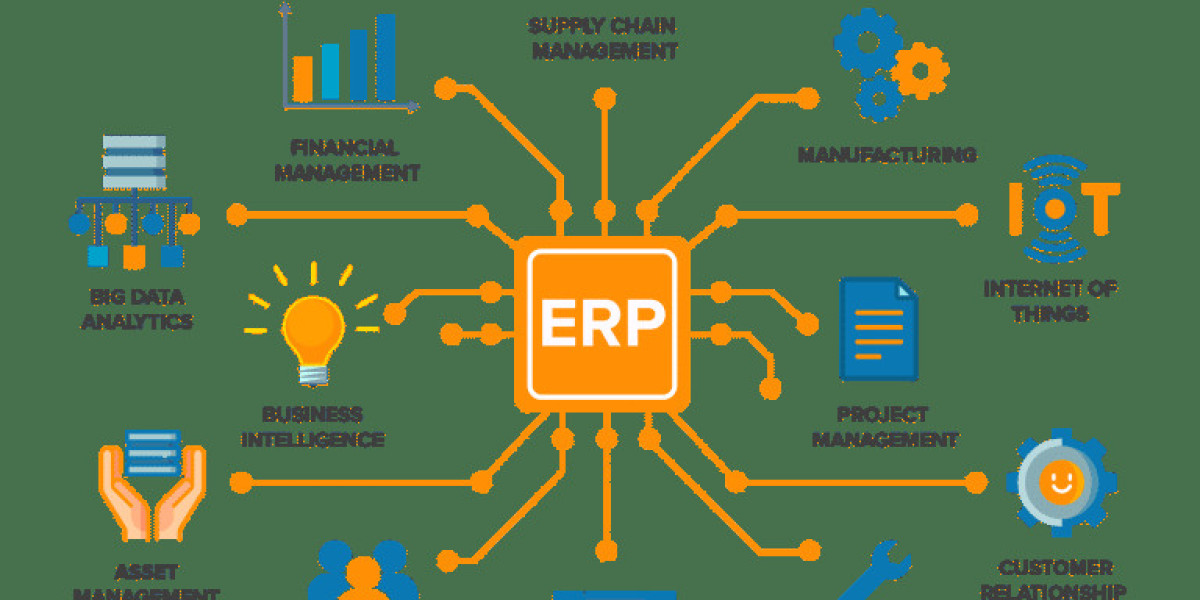The ERP software market is undergoing a significant transformation, shaping the way businesses operate in a fast-paced, digital world. Enterprise Resource Planning (ERP) software has become an essential tool for organizations aiming to improve their operational efficiency and streamline internal processes. From small businesses to large corporations, companies across various industries rely on ERP solutions to integrate core business functions into one centralized system. This consolidation of business processes into a unified platform allows for real-time data access, increased transparency, and improved decision-making.
ERP software offers a comprehensive suite of applications that support a wide range of business activities, including finance, supply chain, manufacturing, human resources, and customer relationship management. By connecting these functions into a single interface, ERP software reduces manual work, eliminates data silos, and enhances collaboration across departments. Businesses that implement ERP systems are better equipped to respond to market demands, optimize resource utilization, and achieve greater scalability in their operations.
Get a sample PDF of the report at –
https://www.marketresearchfuture.com/sample_request/1412
The rapid shift toward digital transformation has fueled the demand for cloud-based ERP solutions. Cloud ERP offers a more flexible, scalable, and cost-effective alternative to traditional on-premise systems. It enables remote access to data and applications, facilitating work-from-anywhere environments and supporting mobile workforces. Additionally, cloud ERP systems are easier to update and maintain, reducing the burden on internal IT teams and ensuring continuous improvements in functionality and security. As businesses become more agile and data-driven, cloud ERP adoption is expected to continue growing.
Another factor contributing to the growth of ERP software is the increasing need for customized and industry-specific solutions. Vendors are developing ERP systems tailored to the unique requirements of sectors such as healthcare, retail, manufacturing, and logistics. These industry-focused solutions come equipped with specialized features, compliance tools, and reporting capabilities that enhance performance and ensure regulatory adherence. Customization not only improves the user experience but also ensures that the ERP system aligns seamlessly with an organization’s goals and workflows.
The integration of advanced technologies into ERP platforms is further enhancing their capabilities. Artificial intelligence (AI), machine learning (ML), and analytics are being embedded into ERP systems to deliver smarter insights and predictive analytics. These technologies empower businesses to anticipate trends, detect anomalies, and automate routine tasks, thereby driving greater efficiency and innovation. For instance, AI-powered ERP can streamline procurement by automatically reordering inventory when stock levels run low, while ML algorithms can analyze customer data to improve service delivery.
User experience is also at the forefront of ERP software development. Modern ERP systems are designed with intuitive interfaces and enhanced usability, enabling users at all levels of the organization to interact with the software effectively. Mobile-friendly dashboards, customizable workflows, and integrated communication tools make ERP platforms more accessible and responsive to user needs. As a result, companies are achieving faster adoption rates and higher return on investment (ROI) from their ERP implementations.
Data security and compliance are critical considerations for ERP software users, especially with the rising threat of cyberattacks and the tightening of global data protection regulations. ERP vendors are placing a strong emphasis on developing secure platforms with features such as role-based access control, encryption, and audit trails. By safeguarding sensitive business information and ensuring compliance with regulations like GDPR and HIPAA, ERP systems help businesses maintain trust with customers and avoid costly penalties.
In today’s competitive landscape, agility and responsiveness are key to staying ahead. ERP software plays a vital role in enabling businesses to adapt quickly to changing market conditions, customer preferences, and economic shifts. The real-time data provided by ERP systems allows for quicker decision-making and more strategic planning. Organizations can identify inefficiencies, track performance, and seize new opportunities with greater confidence.
Browse a Full Report –
https://www.marketresearchfuture.com/reports/erp-software-market-1412
Looking ahead, the ERP software market is poised for continued evolution and innovation. As businesses increasingly adopt hybrid work models and embrace digital-first strategies, the demand for integrated, cloud-based ERP solutions will rise. Future ERP systems are likely to be even more intelligent, user-centric, and adaptable, catering to the dynamic needs of modern enterprises. Vendors will focus on enhancing interoperability with other business tools, enabling seamless data exchange across platforms and ecosystems.
The ERP software market is playing a pivotal role in transforming how businesses manage their operations. By providing a unified platform for core functions, embracing new technologies, and delivering scalable, secure, and user-friendly solutions, ERP systems are driving operational excellence and competitive advantage. As digital transformation accelerates across industries, ERP software will remain a foundational element in the journey toward smarter, more connected businesses.
Top Trending Reports:
Digital Evidence Management Market
Commercial Satellite Broadband Market
Contact
Market Research Future (Part of Wantstats Research and Media Private Limited)
99 Hudson Street, 5Th Floor
New York, NY 10013
United States of America
+1 628 258 0071 (US)
+44 2035 002 764 (UK)
Email: [email protected]
Website: https://www.marketresearchfuture.com








